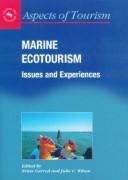| Listing 1 - 10 of 10 |
Sort by
|
Book
ISBN: 0253012767 9780253012760 9780253012739 0253012732 Year: 2014 Publisher: Bloomington, Ind. Indiana University Press
Abstract | Keywords | Export | Availability | Bookmark
 Loading...
Loading...Choose an application
- Reference Manager
- EndNote
- RefWorks (Direct export to RefWorks)
Charles Ives (1874-1954) moved traditional compositional practice in new directions by incorporating modern and innovative techniques with nostalgic borrowings of 19th century American popular music and Protestant hymns. Matthew McDonald argues that the influence of Emerson and Thoreau on Ives''s compositional style freed the composer from ordinary ideas of time and chronology, allowing him to recuperate the past as he reached for the musical unknown. McDonald links this concept of the multi-temporal in Ives's works to Transcendentalist understandings of eternity. His approach to Ives opens ne
Ives, Charles, --- Ives, Charles Edward, --- Aĭvz, Ch., --- Aĭvz, Charlʹz, --- Criticism and interpretation. --- Ives, Charles E. --- Ives, Charles --- Ives, Charles Edward --- Music & Musicology.
Digital
Year: 2018 Publisher: Diepenbeek
Abstract | Keywords | Export | Availability | Bookmark
 Loading...
Loading...Choose an application
- Reference Manager
- EndNote
- RefWorks (Direct export to RefWorks)
Macromolecules --- Chemical and physical crystallography --- Chemistry --- General biochemistry --- Molecular biology
Book
ISBN: 9781490944081 Year: 2013 Publisher: Germany Amazon Distribution
Abstract | Keywords | Export | Availability | Bookmark
 Loading...
Loading...Choose an application
- Reference Manager
- EndNote
- RefWorks (Direct export to RefWorks)
Book
ISBN: 9780335222223 0335222226 9780335222230 0335222234 Year: 2008 Publisher: Maidenhead McGraw-Hill
Abstract | Keywords | Export | Availability | Bookmark
 Loading...
Loading...Choose an application
- Reference Manager
- EndNote
- RefWorks (Direct export to RefWorks)
Dissertation
Year: 2018 Publisher: Hasselt Universiteit Hasselt
Abstract | Keywords | Export | Availability | Bookmark
 Loading...
Loading...Choose an application
- Reference Manager
- EndNote
- RefWorks (Direct export to RefWorks)
Book
ISBN: 1135081492 0203068033 1299448046 1135081506 Year: 2013 Publisher: London : Routledge, Taylor & Francis Group,
Abstract | Keywords | Export | Availability | Bookmark
 Loading...
Loading...Choose an application
- Reference Manager
- EndNote
- RefWorks (Direct export to RefWorks)
Social Psychology and Theories of Consumer Culture: A Political Economy Perspective presents a critical analysis of the leading positions in social psychology from the perspective of classical and contemporary theories of consumer culture. The analysis seeks to expand social psychological theory by focusing on the interface between modern western culture (consumer culture) and social behaviour. ?McDonald and Wearing argue that if social psychology is to play a meaningful role in solving some of society's most pressing problems (e.g. global warming, obesity, addiction, aliena
Consumption (Economics) --- Social psychology. --- Social aspects.
Dissertation
Publisher: Leuven K.U.Leuven. Faculteit Godgeleerdheid
Abstract | Keywords | Export | Availability | Bookmark
 Loading...
Loading...Choose an application
- Reference Manager
- EndNote
- RefWorks (Direct export to RefWorks)
Book

ISBN: 1280998768 9786613770370 1845412826 9781845412821 1845412834 9781845412814 9781845412807 9781845412838 9781280998768 661377037X 184541280X 1845412818 Year: 2012 Publisher: Bristol, UK Blue Ridge Summit, PA
Abstract | Keywords | Export | Availability | Bookmark
 Loading...
Loading...Choose an application
- Reference Manager
- EndNote
- RefWorks (Direct export to RefWorks)
Bringing together scholars from the areas of tourism, leisure and cultural studies, eco-humanities and tourism management, this book examines the emerging phenomenon of slow tourism. The book explores the range of travel experiences that are part of growing consumer concerns with quality leisure time, environmental and cultural sustainability, as well as the embodied experience of place. Slow tourism encapsulates a range of lifestyle practices, mobilities and ethics that are connected to social movements such as slow food and cities, as well as specialist sectors such as ecotourism and voluntourism. The slow experience of temporality can evoke and incite different ways of being and moving, as well as different logics of desire that value travel experiences as forms of knowledge. Slow travel practices reflect a range of ethical-political positions that have yet to be critically explored in the academic literature despite the growth of industry discourse.
Tourism --- Social movements. --- Psychological aspects. --- Movements, Social --- Social history --- Social psychology --- Social movements --- Psychological aspects --- E-books --- ecotourism. --- environmental change. --- hedonism. --- slow food. --- slow mobilities. --- slow tourism initiatives. --- slow tourism. --- slow travel. --- sustainable tourism. --- tourist experience. --- travel experiences. --- volunteer tourism.
Digital

ISBN: 9781845412821 9781845412814 Year: 2012 Publisher: Bristol, UK;; Blue Ridge Summit, PA Channel View Publications
Abstract | Keywords | Export | Availability | Bookmark
 Loading...
Loading...Choose an application
- Reference Manager
- EndNote
- RefWorks (Direct export to RefWorks)


ISBN: 9781873150436 9781873150429 Year: 2003 Publisher: Bristol, UK;; Blue Ridge Summit, PA Channel View Publications
Abstract | Keywords | Export | Availability | Bookmark
 Loading...
Loading...Choose an application
- Reference Manager
- EndNote
- RefWorks (Direct export to RefWorks)
| Listing 1 - 10 of 10 |
Sort by
|

 Search
Search Feedback
Feedback About UniCat
About UniCat  Help
Help News
News